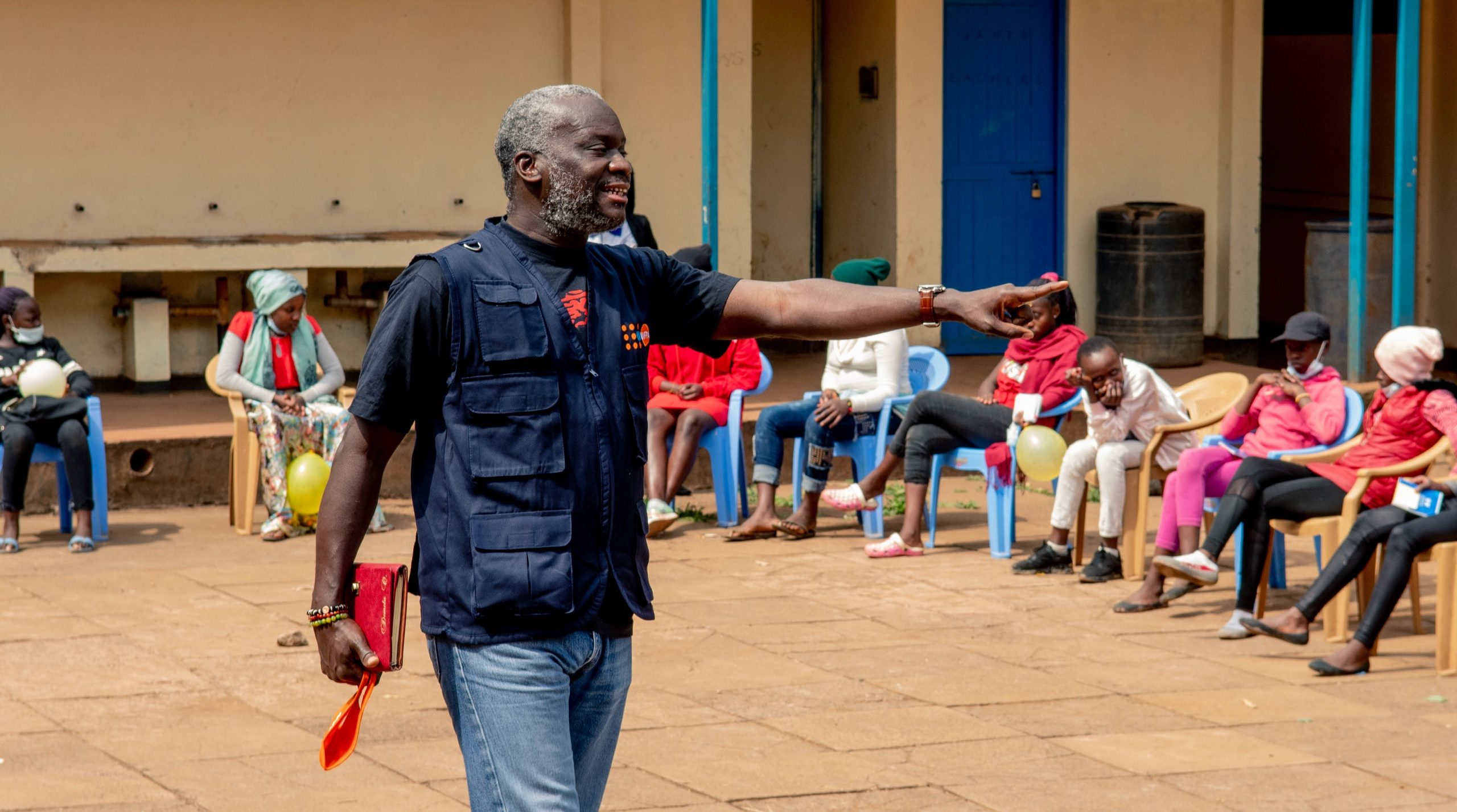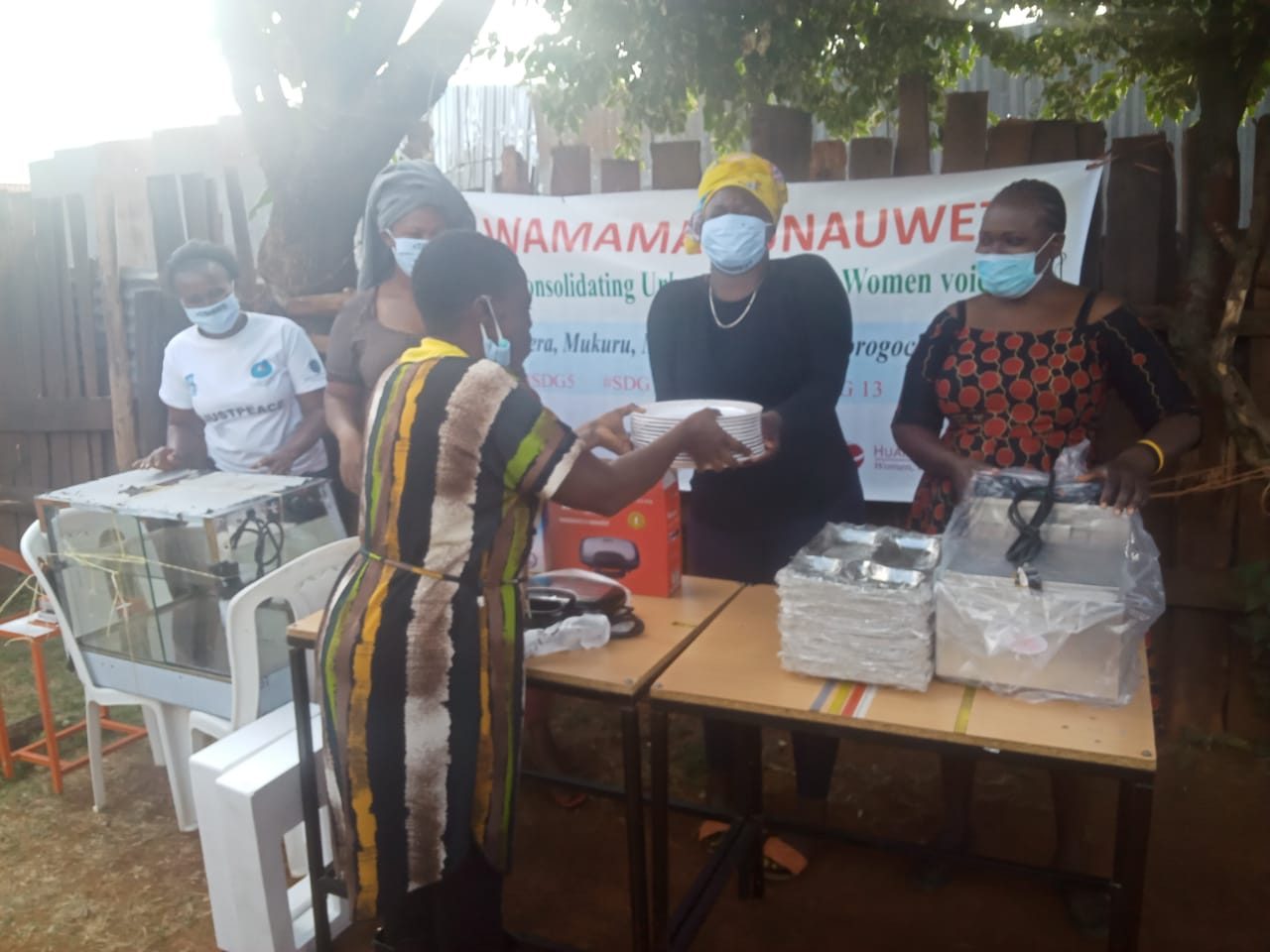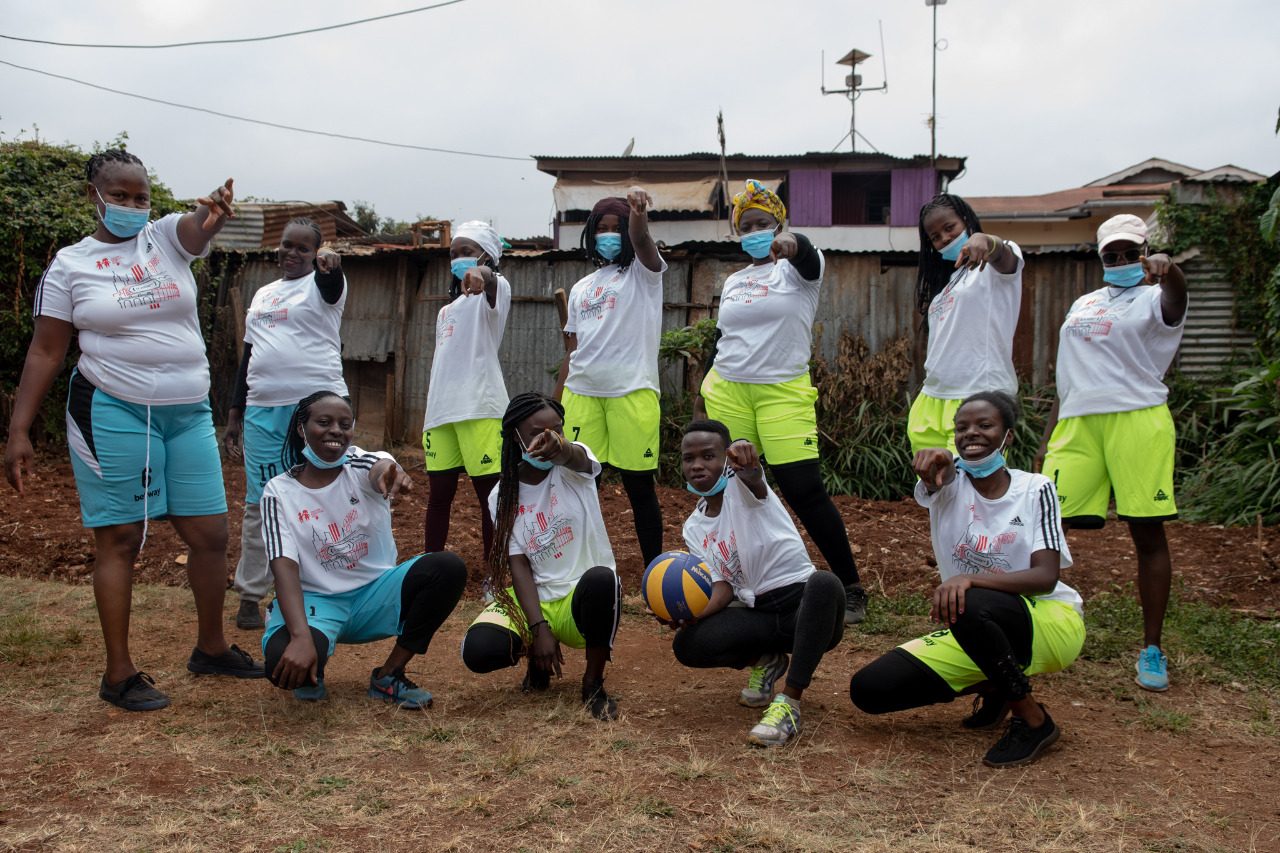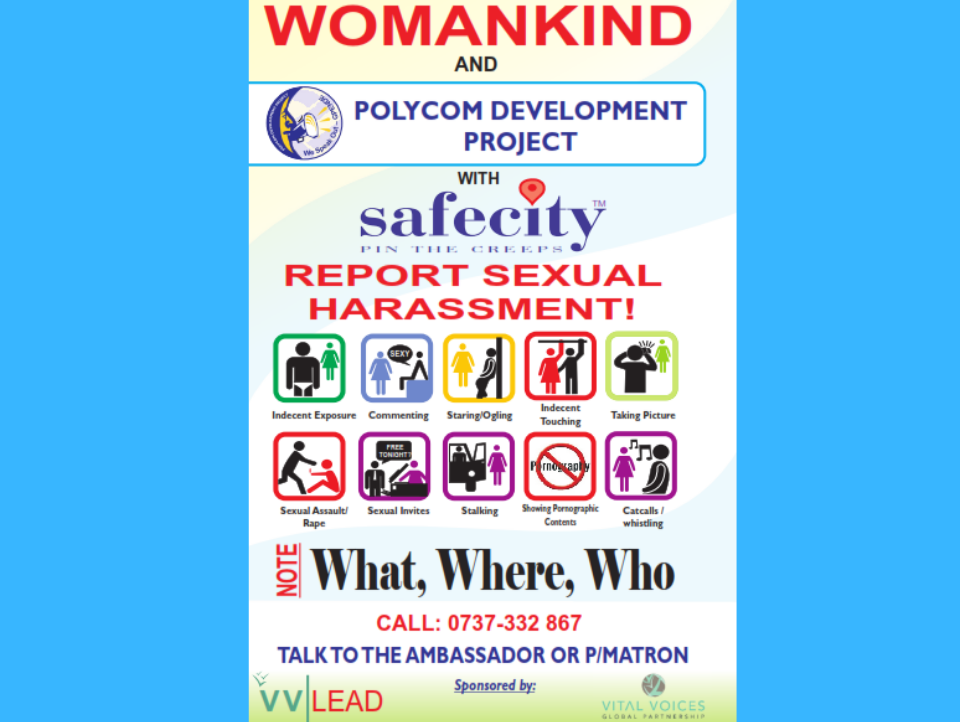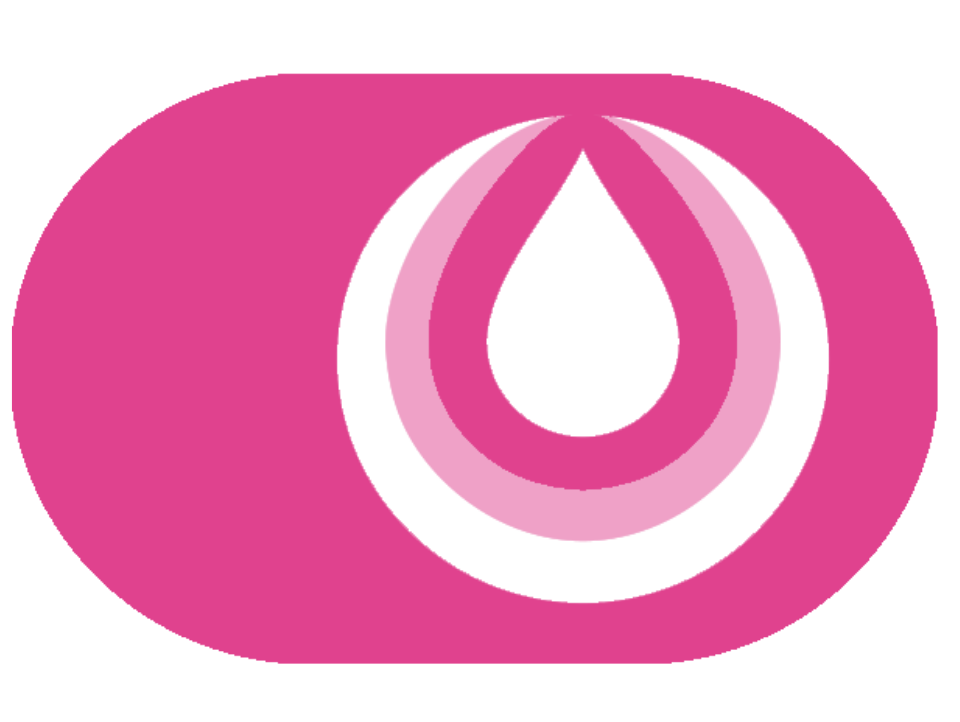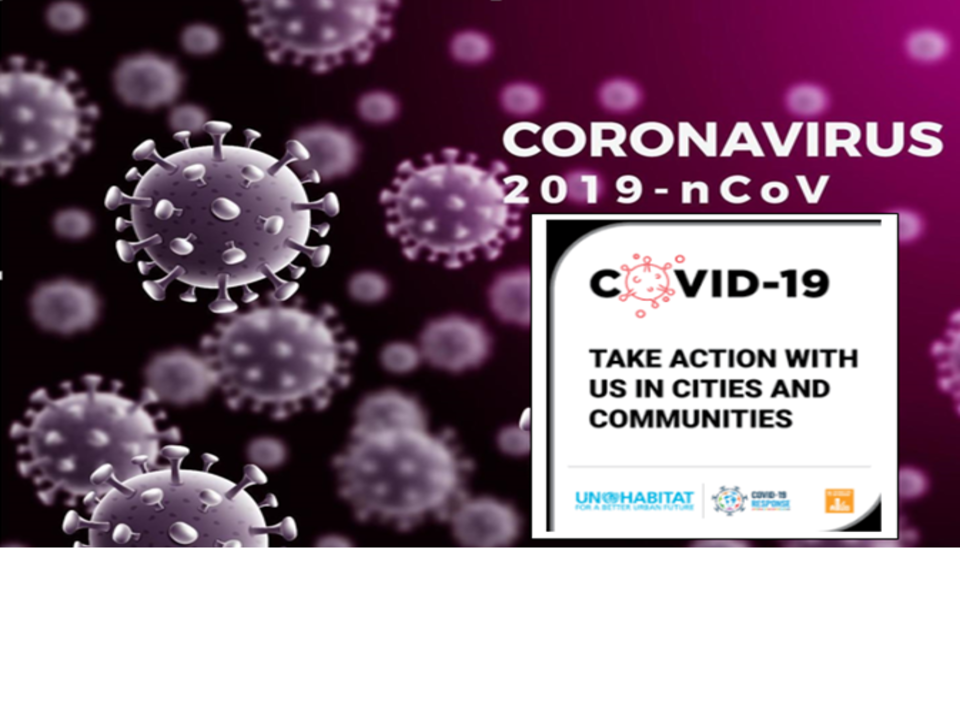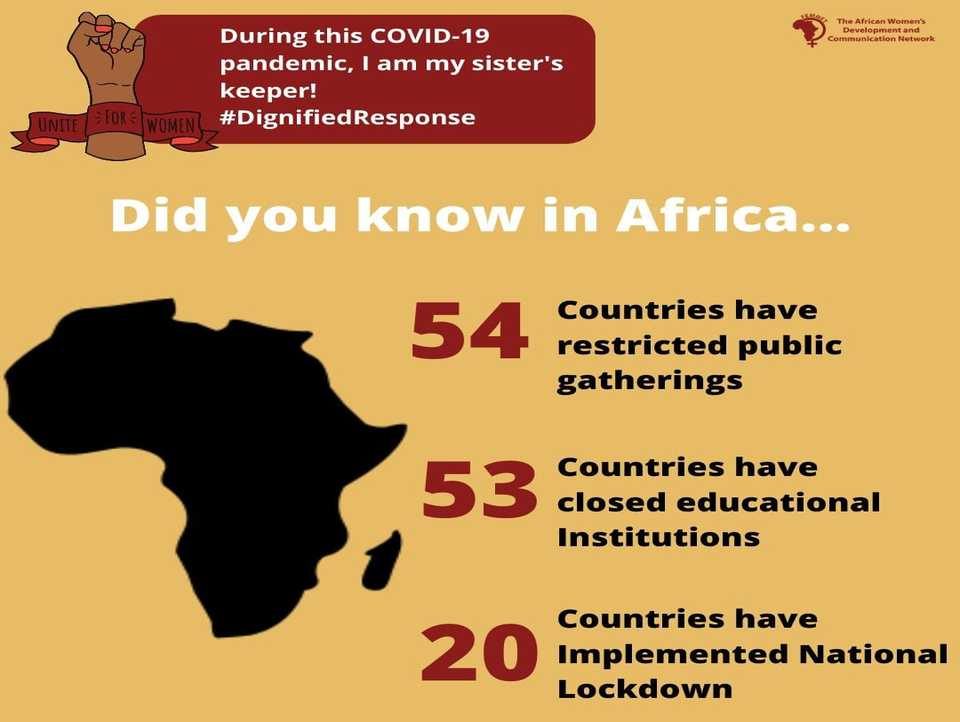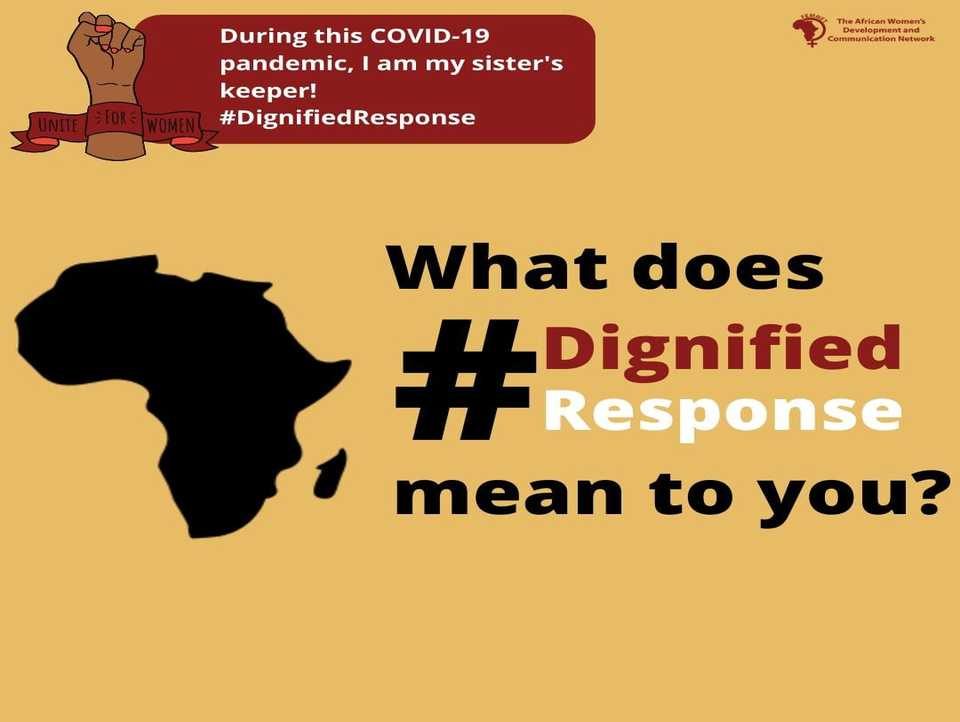Menstrual hygiene is defined as using menstrual management material to absorb or collect blood that can be changes in privacy as often as possible, using soap and water for washing the body, access to facilities to dispose used materials and adequate privacy.
Access to sanitary towels is not a reality for most girls who live in informal settlements. It’s a stark reality facing them just like access to food.
Mary was born in Kibera and has lived in the slum for 15 years. She shares a room with her two parents and two brothers. On this day, Mary was all moody but she shoved it off terming it a daily mood swing. Little did she know that at curfew her periods would commence. Once the clock struck 9pm it was time to go to bed. Mary did not have pads in stock in the shanty, she could not afford it. Her mother had been laid off work due to the COVID 19 pandemic. At midnight, she tosses and turns and her tummy begins to pain and it dawns on her that her periods have started.
She cannot go out, its curfew, her mother does not have any sanitary towel. She is sharing a mattress with her two brothers. What a stark harsh reality to a natural occurrence. Mary can only wait for dawn but in the meantime she has to look for her old shirt and slowly slip it undetected by her family.
This and many other serious situations are what most girls go through when the clock strikes and their menses begin. Poor sanitation and lack of clean water makes the situation worse.
Stigma from peers, fear of being labeled a COVID 19 patient if one goes to the clinic for a simple check up on a tummy ache. The pandemic has made the situation dreadful with most opting for pads for sex. Most motorcycle riders know this is a dire need for the girls’ thus trading sex for pads. This is a risk as most of these girls expose themselves to sexually transmitted diseases including HIV and AIDS.
Menstruation and disability
Living with disability makes this natural occurrence almost a curse. In addition to living in Kibera, with lack of water and proper sanitation, those with disability almost face an inhumane condition. Grace uses crutches and lives alone In a small shanty within the slum. Her aid could not stay any longer and moved on. Grace is by herself she cannot carry water and use the outside toilet. Moving to the next shop to access sanitary towels means she has to crawl over filth and open sewage. COVID 19 pandemic has made this situation awful for those living with disability. There is lack of proper information cascading down to all those with disability. They also face the fear of being molested by idle men within the slums. Those visually impaired do not have aids who assist them know how to use reusable sanitary towels. With this COVID 19 very few entities are paying attention to distribution of sanitary towels to those with disability in the slums.
Menstruation in the rural community
Women and girls living in the rural community are not left behind during this pandemic and access to water and sanitary towels is almost impossible for a remote village. The pandemic has presented many negative socio-economic issues. Most rural women depend on subsistence crops for food, with the looming floods it is difficult for most to access minimal cash to purchase household and personal commodities. Women and girls in rural community settings have low awareness on hygienic practices and lack culturally appropriate materials for menstrual hygiene management practices.
Young adolescent girls in the rural set up tend to be less prepared for menstrual hygiene and suffer from anxiety, apprehensions, fear and shame during menses, in addition, pre-existing social taboos and cultural restraints during menstruation mean that management is difficult during pandemics
Menstruation and confidence
Despite all the mishaps brought about by COVID 19 how can the girls increase their confidence and know how best to handle the situation? It is advised that if possible to wear comfortable clothes, drink plenty of water, have rest and take a warm bath. In addition, girls are encouraged to pamper themselves and or exercise to increase their endorphins levels. Lastly have a heart to heart talk with a fellow trusted peer.
Filling in the gap
Polycom Development has partnered with Loise Harris to start a mini factory within Kibera for the production of pads for distribution to girls within the 50 project schools. This factory set within the slum is a project for the community by the community a model that has worked well in employing the 5 women who work full time in the production of the pads. It is a hope that this model will be replicated within Kibera slum as well as other slums. Jane Anyango the founder of Polycom noticed a higher percent of the girls dropped out of school due to lack of sanitary towels. The girls, she says, would drop notes on the talking box asking for sanitary towels. Her organization at that time did not have the capacity to afford distribution to over 4000 girls. She shared this with Loise Harris who was touched by the situation.
The pad project has since been largely successful with a hope of expanding the factory to a full-fledged employable facility. This will enable the Organization reach more girls than they currently are. At the moment the Organization has been able to reach over 1000 girls since the beginning of the pandemic.
Way forward
- It is a hope that sanitary towels can be distributed as well during this pandemic.
- Local agencies in charge of food distribution should look into this.
- Lobbying and advocacy to our Legislatures to revise the menstrual hygiene policy and reduce the taxes accorded to them.
- It is worth noting that cost of production could be high but the Government and other stakeholders could cushion the women and girls on this.
- Materials should be developed that enable the girls enjoy and manage their periods effectively.
- It is also important to have the voice of the men and the boys in this discussion as most of them participate in one way or another in crashing the confidence of the girls around or contributing to stigmatization.
On an individual basis, as Civil Societies, what are we doing to end stigmatization and improve access to menstrual hygiene materials? We are all advocates in one way or another.

